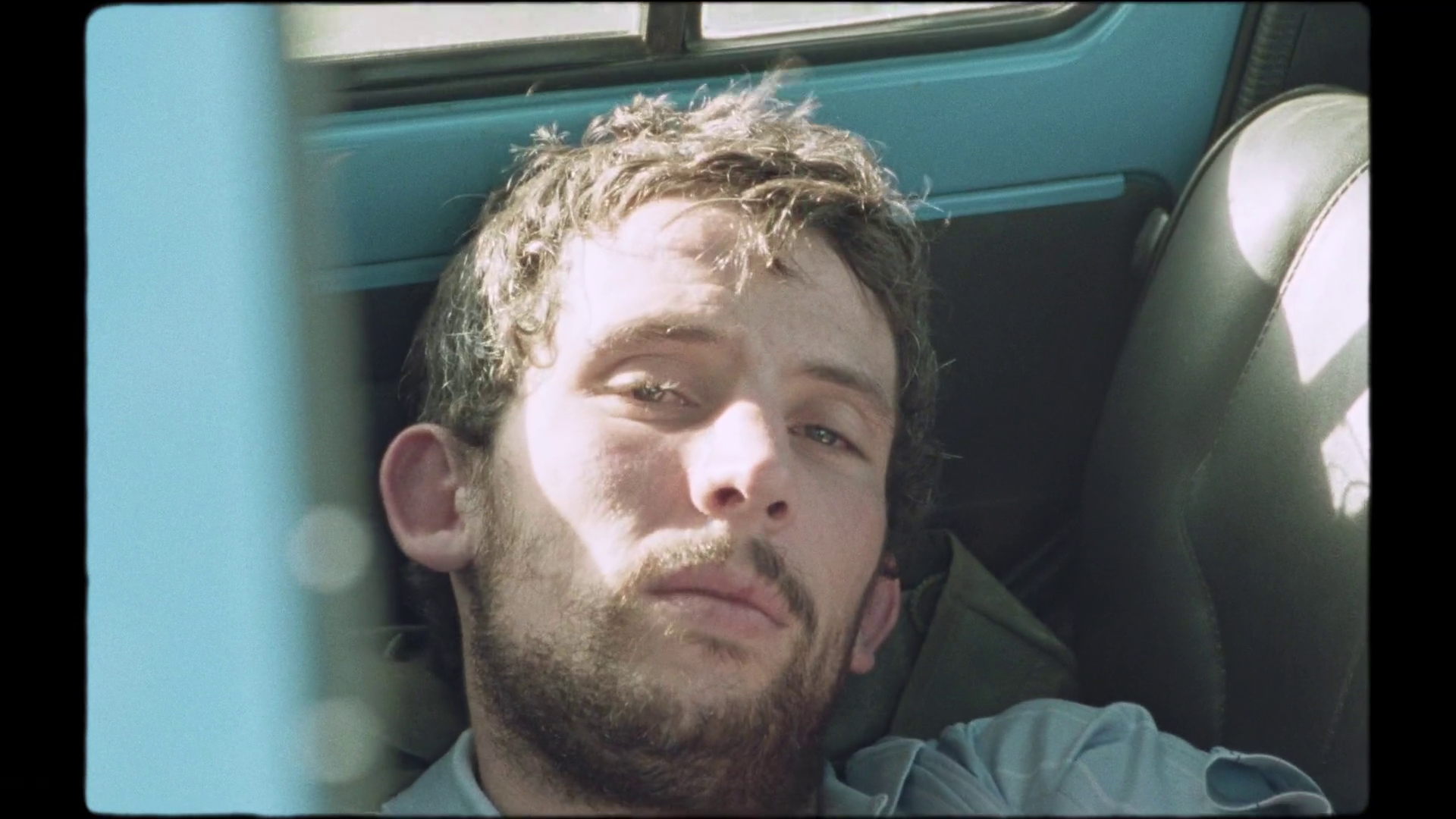La Chimera – So wept Orpheus upon leaving the Underworld
For oh, I know, in the dust where we have buried
The silenced races and all their abominations,
We have buried so much of the delicate magic of life.
[…]
They say the fit survive,
But I invoke the spirits of the lost.
Those that have not survived, the darkly lost.
To bring their meaning back into life again.
Which they have taken away
And wrapt inviolable in soft cypress-trees,
Etruscan cypresses.
— D.H. Lawrence – Cypresses
Italian director Alice Rohrwacher’s greatest quality seems to be the incredible ease with which, over a very worldly neorealism and the depiction of precarious communities, she lays, nonchalantly and gently, not the belief in a higher power but a full-fledged magical realism, sensitive to the most ineffable traits of the unseen. Following The Wonders (2014) and Happy as Lazzaro (2018) comes La Chimera, a culmination of a trilogy dedicated to the relationship with the place (Italy), with history, and with the miraculous, digging (pardon me) even deeper into the past, towards some more profoundly forgotten dimensions of time. Through the cracks of Tuscan land, from the depths, there peeks the myth – the pre-Roman myth, to be exact – with Rohrwacher’s script following a small and charming troupe of Etruscan grave robbers. Neoclassicism blends into romanticism: what is unearthed is not only the historical object; La Chimera is, ultimately, the story of a love once lost among the ruins, whose fleeting glimpses of apparent rediscovery inevitably fill one’s heart with the certainty of the purity and transcendence of love.
There is a hint of Rohrwacher’s background as a classicist in her protagonist Arthur (Josh O’Connor), a modern kind of Orpheus, caught between the underground and the world above, between reality and another realm – that of dreams, of the dead, of memory, of history, of all the places where those we no longer know anything about eventually leave to. Arthur is silently mourning his Eurydice, a certain Beniamina (Yile Vianello) who has gone missing but occasionally appears “from beyond”, in lyrical montages that permeate the fabric of reality, of which it’s uncertain whether they pertain to the dream world or the young man’s memory. The girl’s absence dominates his thoughts and life, but just as trapped is the girl’s mother, Flora (a luminous Isabella Rossellini), who keeps waiting for her to return to their house – a now dilapidated relic that once, in another century, used to be a beautiful gem. A slight chance at a new life glimmers for Arthur when he meets Italia (Carol Duarte), Flora’s “student” who is more clearly her servant, yet he is pulled further and further astray by his magical affinity and the red thread of fate – here an actual physical presence fluttering across the screen in dreamlike moments. The young man is tormented by his “chimeras”, as his gang-mates call them, a divine gift that helps him magically detect hidden in Etruscan tombs, as much as a pact that binds him, fatefully, to the other world. A bond also grounded in reality, and which Rohrwacher knows how to exploit allegorically: after all, Arthur’s profession as an archaeologist inherently deals with death, with that which no longer belongs to the present (this evasion from the present spreading across all of Rohrwacher’s filmography).

Despite the classical references, the titular chimera is only present in the film as something abstract, as a name for the indecipherable, as a magical and tormenting folly of Arthur’s. But the mythical composite animal may be just the film itself, blending with particular finesse the most surprising of elements. Rohrwacher’s intentional anachronism is particularly playful: what other film soundtrack brings together Kraftwerk, Verdi, and Italian hits from the 1980s to talk about Time with a capital T? As much as the dominant tone is the smooth thread of lost love, sweet and melancholic, the film breaks the lull and juggles with sped-up sequences, addresses into the camera, flips the frame upside down, and spreads across three formats (16mm, Super 16 and 35mm), each used to relativise the boundary between reality and other realms. The world of the dead, the world of the living, the ancient past, the recent past – the crypts of La Chimera harmonise them all, under the symbolic gesture of unearthing, and draw us all deep into a limbo of the spirits of time, into the mythical space from which they draw their sap.
Masculine graces
Last year, after watching the film at Karlovy Vary, I was saying that this is Josh O’Connor’s best role yet, a sweet, memorable and even surprising performance – it’s as if only in La Chimera does he truly fulfil his destined typology of a soul belonging to another era, that considering how most of the films and TV shows he stars in tend to be period pieces. Despite the fact that Rohrwacher’s films are often about communities, much of the charm of La Chimera rests on the individual shoulders of O’Connor’s melancholic charisma as a fallen archaeologist and his emotional unpredictability. The focus on the protagonist is perhaps even greater here than it was on the saint prototype depicted in Happy as Lazzaro. As much grumpy as he is vulnerable, Arthur demonstrates Rohrwacher’s extraordinary ability for capturing masculine graces, such seeds of the sublime that many of the scenes cultivate by looking at poignant moments of fragility, where the sun caresses the young man’s face, deeply immersed in dream or in trance. His magical rituals of searching for underground passages have the same vulnerable charm; there is something disarming, perhaps even tender, in his exhausted collapses after the deed is done.
In this provincial microcosm stuck in the past – literally and figuratively, because, as Rohrwacher recalls from her childhood, in this part of Italy, after one dig of a shovel you’ve already stumbled on the ancient past is revealed – Arthur is the Englishman, the handsome foreigner. He is that presumed gentleman who fascinates and attracts, or, on the contrary, amuses by his incongruity with the place. His dishevelled suit, his sparse words, and the moments when he repeatedly and vulnerably falls asleep on the train seem to present O’Connor as if he were a young man from the 19th century who got lost on the Grand Tour, brought to Italy by the need and the tradition of further educating oneself about classical culture. Even if just out of prison for grave robbing as the film begins, Arthur’s construction does appeal to this type of erudition where, in the artefacts he discovers, he clearly sees something more than just the money; it is by no accident that the things he collects from his tombaroli plunders are simple, commonplace objects of very little financial value, things that are more symbolic if anything, like a bell that could be a child’s toy. Arthur’s great rebirth within the narrative also stems from this moral drama, where the profane act of grave robbing, whether driven by precariousness or not, finds itself in conflict with the love for artefacts, for the soul of the past to which it is linked.
Crucially, however, O’Connor’s character is not presented as the civilising adventurer, as much as he may inherit something of the archetype through his nationality and the archaeological pretext. In La Chimera, the narrative is closer to the perspective of the locals, a narrative which accommodates Arthur, while giving the actor room to play him as if his mystical connection to the place naturally ties him to the land. I grossly contrast this assimilation of the foreigner with another role of O’COnnor’s, that of Larry Durrell in The Durrells, where, as an early 20th century immigrant in Greece, the focus always falls on the British perspective on the foreign land. The O’Connor there also has an attachment to the new place, but he’s constantly imbued with a tacit superiority to the point that he becomes hard to like if not annoying. The O’Connor here is disarmed, lost, and thus more candid – he belongs to the fabric of the place, even if he may be its rougher side.

Fellini is dead! Long live the new Fellini!
Present as well in La Chimera is Rohrwacher’s interest in the destinies of communities, found here in the small, bucolic, and Felliniesque rurality that is home to the tombaroli, they themselves being portrayed more as a vaudeville troupe than mere criminals. The film enhances the playfulness that surrounds them by presenting their adventures of digging and running from the carabinieri in comically sped-up montages, as if it were a ‘cops and robbers’ sketch lifted straight from early cinema. In fact, there’s little to confirm that we’re in the ’80s; there’s the occasional transgressive snippet of security footage when they visit the city, but the small village and its festivities seem anachronistic, operating out of time – albeit to a lesser extent than the naive community of modern slaves in Happy as Lazarro. Operating behind this juxtaposition of various rural idiosyncrasies is, however, Rohrwacher’s discourse on belonging as salvation from life’s worries. The context of grave robbery is a historical drama, but it also presents itself as an economic solution that this community is forced to resort to, a dire need that no longer cares for the spirits and the sacred, and only sees bones where there are bones. As Rohrwacher is often interested in the effects of capitalism over communities, La Chimera acts almost like a small treatise on how the archaeological object turns into a commodity; at first, seemingly more innocently, in the hands of the tombaroli, and then abusively, in the hands of the art market and the international collectors, who are keen on prestige and influence.
I will not crush, with my eyes, the world’s corolla of wonders, seems to be the lesson left behind by how Arthur’s relationship with archaeological objects evolves, a relationship culminating with the discovery of a beautiful hunting goddess, quickly then lost. The old things, that which belongs to the past, gradually become from “things which many eyes have seen” to “things that human eyes should not look at”. La Chimera is a surrender to the magical and a solar gesture of affection aimed at the viewer – when Rohrwacher shows us a privileged peek at the superb frescoes of a tomb just before the air enters and robs the pigments of their vitality, she trusts that the viewer will know how to keep the mystery to themselves and maintain their hope in those ineffable and sublime things that the realm of visibility, the return to the human, defiles and destroys.

Graduated with a BA in film directing and a MA in film studies from UNATC; she's also studied history of art. Also collaborates with the Acoperisul de Sticla film magazine and is a former coordinator of FILM MENU. She's dedicated herself to '60-'70s Japanese cinema and Irish post-punk music bands. Still keeps a picture of Leslie Cheung in her wallet.
Title
(Română) La Chimera / Himera
Director/ Screenwriter
(Română) Alice Rohrwacher
Actors
(Română) Josh O'Connor, Isabella Rossellini, Carol Duarte, Vincenzo Nemolato, Alba Rohrwacher, Yile Yara Vianello
Country
(Română) Italia / Franța / Elveția
Year
(Română) 2023
Distributor
(Română) Independența Film
